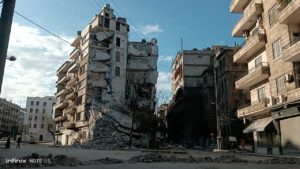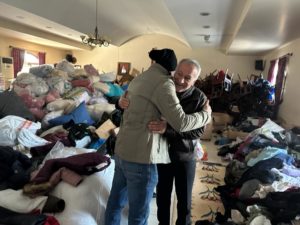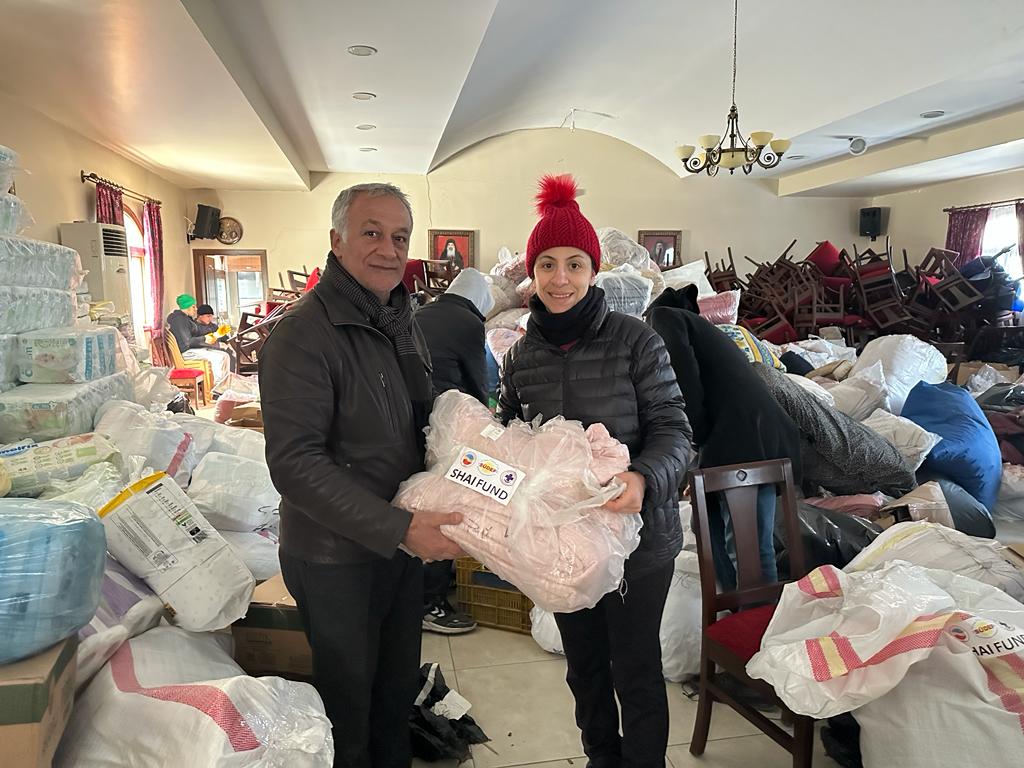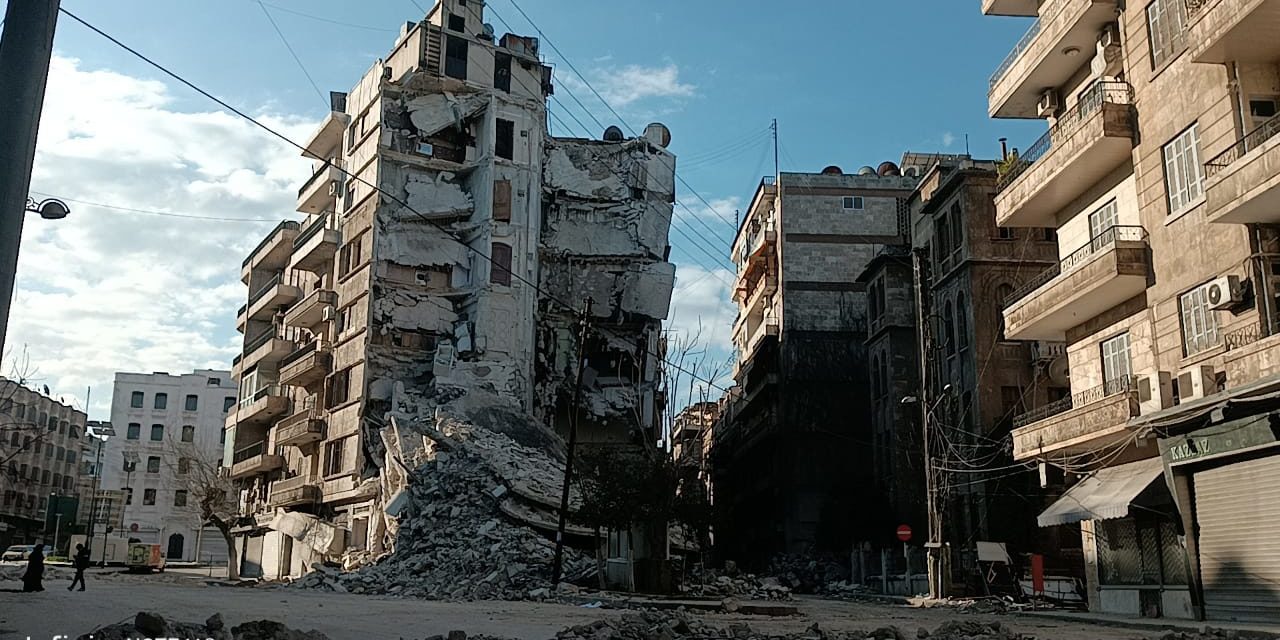Earthquakes have shaken Turkey, Syria and the border region
What happened
In the early morning of Feb. 6, 2023, an earthquake measuring 7.8 on the Richter scale struck southern Turkey and the Northwest of Syria. It was followed in the morning by a second earthquake with a magnitude of 7.6. The first quake occurred at a depth of 17.9 meters, about 25 km from Gaziantep. The second quake slightly north in Ekinözü. The size of the area affected by the earthquake is comparable to the land area of the Netherlands and Belgium combined.

According to the Turkish Disaster Management Agency, more than 11,000 buildings were destroyed. A large portion of these, some 1,200, were in the city of Hatay. Three days after the quake, more than 20,000 people had been reported dead, including about 3,480 in Syria and more than 17,000 in Turkey.
According to the World Health Organization (WHO), some 23 million people in Syria and Turkey have been affected by the earthquakes and aftershocks. The WHO expects the death toll to rise further over the next weeks.
Relief efforts in Turkey came quickly. The Red Cross immediately set up a crisis center in Ankara and Search &Rescue teams arrived from diverse countries. International emergency aid, thanks in part to the €6.5 million released by the European Commission for humanitarian aid, got underway quickly.
Aid delivery in Syria is difficult because one part of the area is in the hands of the government and the other in the hands of the opposition, while a variety of international sanctions are still in place because of the Syrian civil war. At the same time, reaching the affected areas and delivering aid by aid workers is made difficult by the poor weather conditions.
What do we do
After the initial shock, calls for help quickly materialized. Suryoye Aid Network International (SANI), a cooperation of international relief organizations, such as Schlomo Netherlands, SCHlomo Switzerland, Syriac Cross Belgium and Syriac Cross Germany, immediately reserved two bank accounts for donations toward initial, basic relief supplies.
Sandra Korteweg, Coordinator of SANI: “We as SANI are aware of the humanitarian duty we have undertaken since our inception ten years ago to help vulnerable people where we can reach, so we stand ready to help the affected families of the earthquake”. Medical aid is under great pressure. Suryoye Aid Network International is fully established in the affected areas and has its volunteers on standby in various locations to carry out emergency aid. Our network is always ready to cooperate with other (international) NGOs to carry out the needs of affected people and their families.
have undertaken since our inception ten years ago to help vulnerable people where we can reach, so we stand ready to help the affected families of the earthquake”. Medical aid is under great pressure. Suryoye Aid Network International is fully established in the affected areas and has its volunteers on standby in various locations to carry out emergency aid. Our network is always ready to cooperate with other (international) NGOs to carry out the needs of affected people and their families.
What can you do
The best thing you can do is donate. Sending goods is well-intentioned, but not only difficult to deliver, but also difficult to estimate exactly what relief goods are needed where and when.
We focus on those in need in Syria and Turkey because we have the Syriac Cross Organization (SCO) volunteer organization on the ground there. Therefore, we work with donations: Money can be transferred to Syria, goods are available there.
We are providing emergency aid to the people on the ground. Help us – your donation saves lives!

To support the people on the ground, we help in particular as follows:
- We distribute food packages and baby food
- We provide people with blankets, tents and warm clothes
- We distribute hygiene packages and medicines



![[vc_single_image image="5756" img_size="full" css="" title="Libanon-Hilfe"]](https://syriaccross.com/wp-content/uploads/2025/12/Libanonhilfe-2-110x80.jpg)


